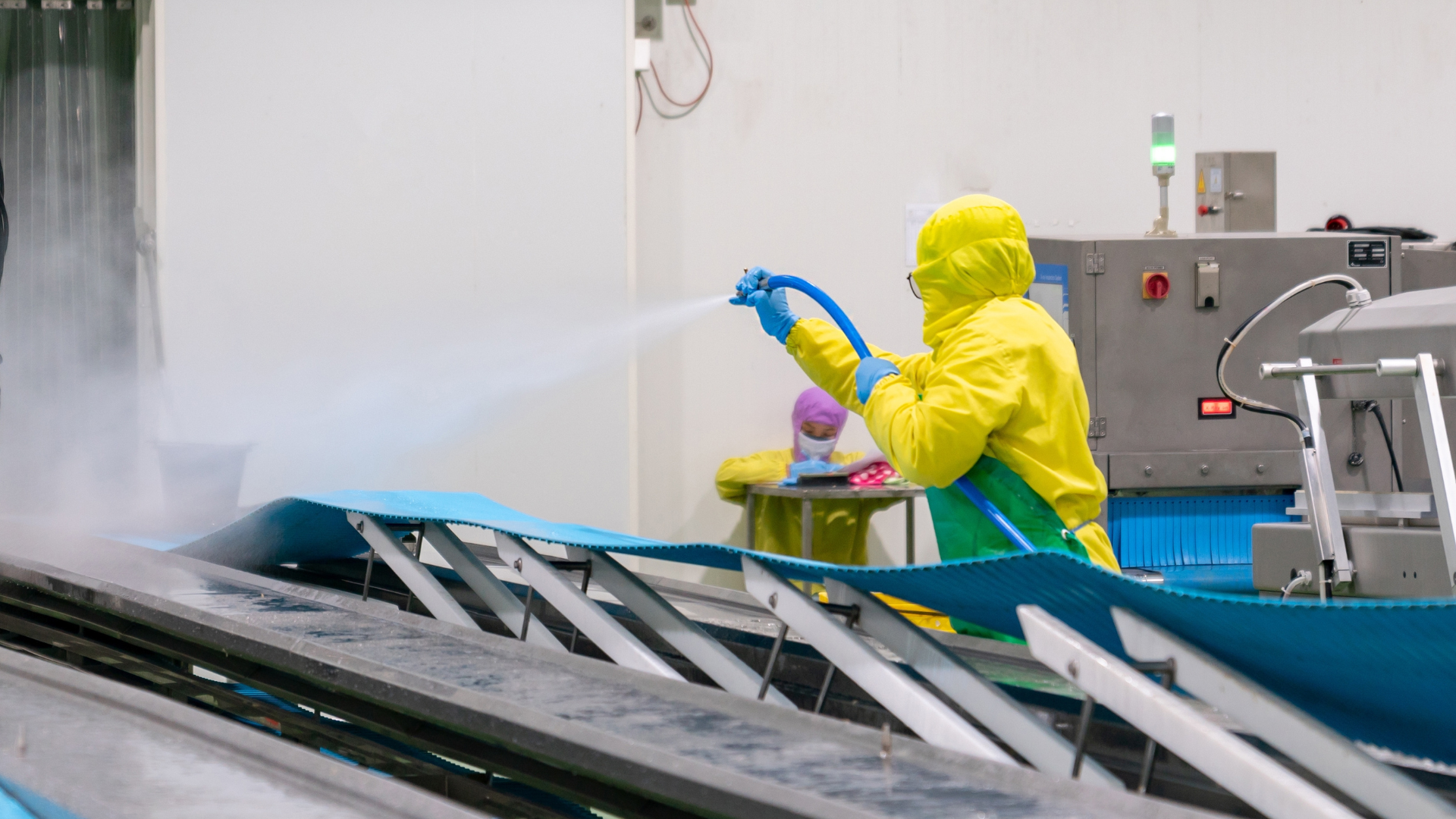
Blackstone’s PSSI contests OSHA scrutiny as worker injuries have continued
April 5, 2024
More than a year after a U.S. Department of Labor (DOL) investigation exposed child labor at Blackstone’s Packers Sanitation (PSSI), injuries continue at PSSI worksites, and the company has fought OSHA oversight with legal maneuvering, including making efforts to minimize the scope of OSHA inspections and ensuring that an attorney accompany OSHA inspectors as they tour limited areas of meatpacking plants.
In August, the DOL’s Occupational Safety and Health Administration (OSHA) issued PSSI a citation in Illinois where “an employee was exposed to machine hazards associated with moving parts and pinch-points during cleaning of a Bread Line Conveyor which resulted in the fracture to the employees left arm.” PSSI has contested the violations in Illinois.
In Kansas, where PSSI employs workers during the third shift (11pm to 7am) at a Dold Foods bacon packaging worksite, OSHA found that an employee faced “amputation hazards in that procedures for the control of potentially hazardous energy were not utilized,” leading to the employee amputating a finger and part of his hand. As part of the investigation, OSHA requested various documents from the company and interviews with staff. In documents obtained through the Freedom of Information Act (FOIA), OSHA claims that the “Employer has been hesitant about providing safety and health programs and training records. Employer did not provide all documents on the initial request” and “did not accept the subpoena that the CSHO [certified safety and health official] attempt to deliver in person at the worksite.” Furthermore, PSSI “did not allow audio recording or signature of interviews” with workers and included the company’s attorney in the walk around.
PSSI refused to allow OSHA inspectors to inspect equipment and work not specifically required by law, and in response to a subpoena, accused OSHA agents of intending “to harass and engage in an arbitrary, impermissible fishing expedition.”
According to the company, the employee resigned before returning to work, and he would have been terminated if he had returned. Fisher Phillips attorney Travis Vance handled communication with OSHA on behalf of PSSI. In a letter from PSSI’s lawyer to OSHA officials, the company blamed the worker for his own amputation, arguing that the employee disregarded training protocols. OSHA found that enforcement and preventive action around the company’s safety and health program was inadequate. The Kansas citation has been withdrawn as part of a settlement with OSHA in which PSSI agreed to correct violations and pay $15,625 in penalties.
In February 2023, PSSI paid $1.5 million in civil money penalties after the DOL’s Wage and Hour Division found the company employed at least 102 children – some as young as 13 years old – in hazardous occupations, and had them working overnight shifts at 13 slaughterhouses in eight states. The children were working with hazardous chemicals and cleaning meat processing equipment including back saws, brisket saws and head splitters. Investigators learned at least three minors suffered injuries while working for Packers Sanitation.
As a result of the investigation, PSSI lost contracts with three of its clients, Tyson, Cargill, and JBS, and the value of the company’s debt dropped dramatically. In early November, Bloomberg reported that PSSI’s third quarter 2023 earnings had fallen 50 percent from the third quarter of 2022, with net sales down 21 percent. Moody’s downgraded PSSI’s credit rating in May and again in November, while S&P downgraded PSSI in October.
Ongoing labor problems within the Blackstone portfolio recently led New Mexico Treasurer, Laura Montoya, to write Blackstone stating that she would “no longer support the future investment of New Mexico’s state funds with [Blackstone], at least until [the] firm can demonstrate that its businesses have significantly improved their labor practices.”
Blackstone received the lowest grade on the Private Equity Labor Scorecard, scoring worse than all its peers in amount paid for wage and hour violations, wage and hour lawsuit settlements, and amount paid for OSHA violations.
The Blackstone Group should proactively guarantee labor rights across its portfolio by embracing a portfolio-wide set of labor standards like the Private Equity Labor Rights Platform.
